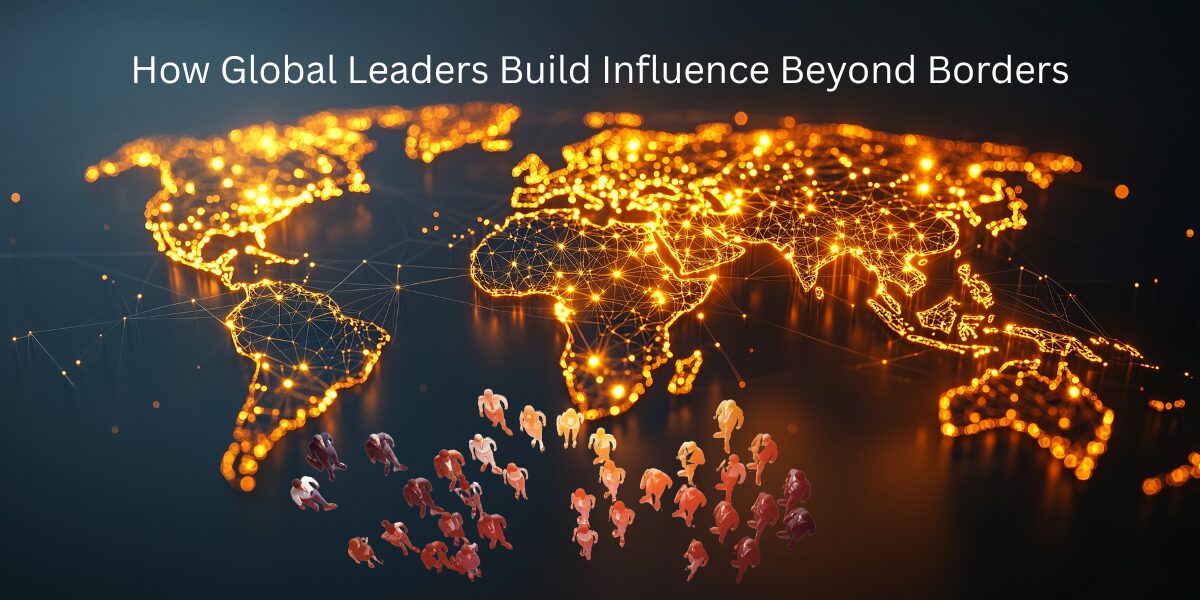
Global leadership influence is no longer a choice for leaders who want to stay relevant. Today, leaders who shape industries are not only known in their own country but across continents. Their impact follows them, whether they are speaking at events, building companies abroad, or mentoring the next generation of entrepreneurs. Influence now travels faster than ever, and how leaders manage that reach defines their long-term success.
What Global Leadership Influence Really Means
When people discuss influence, they often envision power or titles. But global leadership influence is something different. It is about being trusted and respected by people who may never meet you in person. It is about the ability to create ideas, shape industries, and inspire change across cultures.
A leader with influence is not just known; they are also respected. They are remembered. They leave a mark on how people think and act. And when their voice is heard across borders, they can impact trade, investment, and social growth on a much bigger scale.
Building Authority Worldwide
No leader can grow global influence without building authority worldwide. Authority does not come from one speech or one deal. It comes from consistent work and a reputation that people can rely on.
To build authority worldwide, leaders focus on three things. They show integrity in every decision. They share useful knowledge, not just self-serving. And they build networks based on trust, not convenience.
For example, leaders who attend global forums and share insights often become the go-to voices in their industries. When their work is backed by action, not just words, their authority grows naturally.
Leadership Expansion Beyond Home Markets
Leadership expansion starts when leaders stop thinking only about home markets. The ability to scale leadership across borders means adapting to new environments while keeping core values strong.
Leaders who expand successfully know that leadership styles do not always translate. What works in one country may not work in another. The key is flexibility. They listen first, learn the culture, and then lead with respect.
Expansion is not about control. It is about guidance. Leaders create local teams that understand markets better than they ever could. Then they give those teams the support and vision needed to succeed.
Driving Cross-Border Growth Through Relationships
No leader can claim global influence without cross-border growth. And growth across borders rarely happens without strong relationships.
Cross-border growth is built on partnerships, alliances, and trust. Leaders who respect cultural differences and make the effort to understand local ways of working build longer-lasting connections.
I have seen leaders succeed by keeping things simple. Instead of entering new regions with rigid rules, they take time to learn how people negotiate, how trust is built, and how respect is shown. This patience pays off.
The best partnerships often start with shared values. Profit follows when both sides feel understood and respected.
Challenges That Come With Global Leadership Influence
Global reach brings opportunity, but it also brings challenges. Leaders face cultural gaps that can cause misunderstandings. They face regulations that vary by country and can slow expansion. They face risks to their reputation when messages are not received the way they were meant.
Handling these challenges requires balance. Leaders cannot please everyone, but they can lead with clarity and respect. They must accept that mistakes will happen, but also take responsibility quickly. The more transparent they are, the stronger their influence remains.
Skills That Make Influence Last
Influence is not a one-time event. Lastly, it requires skills that leaders refine daily.
One key skill is listening. Leaders who listen well learn more about the people they want to influence. They show empathy by respecting perspectives that are not their own.
Another skill is decision-making under pressure. Global leaders often face high-stakes choices that affect more than one market. Their ability to decide with confidence while staying fair sets them apart.
And finally, building networks that last across markets. Leaders who keep relationships strong, even when deals are done, maintain influence for decades.
Global Leadership Influence in the Digital Age
The digital era has expanded its influence faster than anything else. Social media platforms give leaders a direct line to millions of people. Thoughtful leaders use this power carefully. They share ideas, not just updates. They use their voice to educate, encourage, and inspire.
Speaking at global events has also moved online. Leaders who join international panels or webinars are seen as thought leaders far beyond their home base. They do not need to be in the room to be heard anymore.
Personal branding online also plays a huge role. A leader’s digital footprint often speaks louder than their resume. Consistency across platforms builds trust, and trust builds influence.
Case Study of Real Leaders
History gives us countless examples of global influence. Think of business leaders who scaled small companies into worldwide giants. Or social leaders who fought for justice and inspired movements across continents.
These leaders often share common traits. They do not only focus on profit. They focus on legacy. Their decisions ripple across industries and cultures because they are rooted in values people can believe in.
How Personal Branding Helps Global Leadership Influence
Personal branding is more than a logo or a tagline. For leaders, it is the story they tell about who they are and what they stand for.
When a leader focuses on personal branding, they demonstrate reliability and consistency. People across borders see the same values in their speeches, actions, and partnerships. This consistency builds trust.
For example, leaders who write, speak, and share insights consistently are seen as experts. Their personal brand supports their authority. And with authority comes lasting influence.
Legacy and Future Impact
Influence is not measured only by today’s success. The real measure of a leader is whether their work continues even when they are not present.
Global leaders think in terms of legacy. They ask what impact they will leave on the next generation. They build institutions, mentor young leaders, and create practices that survive beyond them.
This is what makes their influence more than temporary. It becomes part of the way industries and communities move forward.
Conclusion
Global leadership influence is built on trust, consistency, and respect across borders. It requires leaders to expand authority, drive cross-border growth, and manage challenges with honesty. Influence lasts when it is supported by personal branding, strong values, and relationships that stand the test of time.
A strong example is Ashish Vijay and AV Group. From Dubai, Ashish Vijay turned family expertise into a global presence in gemstones, jewellery, and investments. By combining tradition with vision and by supporting inclusive growth, he shows how leaders can build influence beyond borders while staying rooted in values.
FAQs
- How does global leadership influence?
Global leadership influence is a leader’s ability to inspire and impact people, industries, and ideas across countries and cultures, shaping change on a worldwide scale.
- How can leaders build authority worldwide?
By being consistent, sharing useful insights, and creating trust-based networks.
- Why does cross-border growth matter?
It allows leaders to expand opportunities, create jobs, and share knowledge beyond one market.
- What skills help leadership expansion?
Listening, empathy, decision-making, and building lasting partnerships.
- How does personal branding support global influence?
Personal branding helps a leader communicate their values and vision consistently across regions, strengthening trust, credibility, and authority worldwide.

